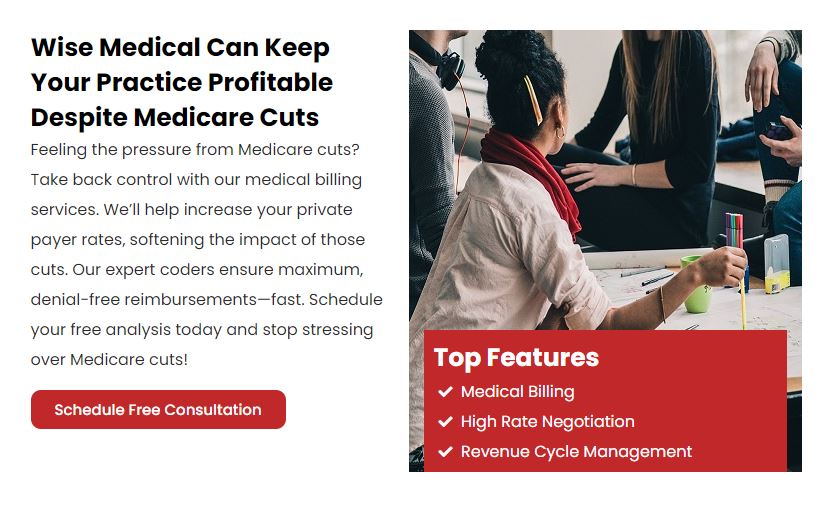Why regular RCM audits are important for Medical Practices?
Introduction
Healthcare practices must stay financially stable and viable to ensure profitability in helping patients receive quality services. Revenue cycle management involves managing all steps of patient care efficiently. Several billing software and facilities are used, from registration to scheduling an appointment for treatment and payment collection. All steps are completed efficiently, and payment collections are enhanced. All are included in the RCM process. A revenue cycle audit is a detailed survey of healthcare organizations’ financial records, processes for patient care, and practices to enhance profitability. This overview is crucial to delivering error-free, improved patient facilities and helping organizations comply with regulations.
Financial Health and Stability
Identifying revenue leakage: Financial stability is crucial for healthcare practices, and identifying revenue leakage is a significant solution. Knowledge about the underlying factors helps in plugging the holes. Regular RCM audits are like blessings in a curse; find out whether billing errors, due payments, or wrong codes affect the annual revenue enhancement rate.
Improving cash flow: The audits help improve cash flow by enabling practices to adopt policies and principles that effectively align cash inflows with annual expenditures.
Enhancing financial forecasting: After having comprehensive knowledge about their revenue cycle and involving reasons to reduce it, healthcare practices can better predict their incoming financial condition. This advanced forecasting helps to choose long-term budget planning and economic improvements for better results.
Compliance and Risk Management
Ensuring adherence to healthcare regulations: Compliance with healthcare regulations is necessary for a smooth cash flow and reduces billing errors to enhance revenue. RCM audits help in adopting updated laws to prevent penalties.
Reducing the risk of audits by payers: RCM audits guide adopting accurate billing practices and report about challenging issues before risking payer audits. Prevention from payer audits saves additional costs and time for healthcare organizations.
Protecting against fraud and abuse allegations: Revenue audits protect against fraud allegations and guide adopting such regulations and policies that can prove them transparent and accurate in the healthcare ecosystem.
Operational Efficiency
Streamlining billing processes: Audits recognize billing errors and enable healthcare organizations to adopt effective administrative strategies that can heighten revenue by getting successful billing reimbursements.
Reducing claim denials and rejections: Audit experts analyze denial patterns and help practices correct their submission process, reducing denials and preventing payment rejections. They also guide practices on correct coding and regulation requirements for better reimbursement rates.
Improving staff productivity: When healthcare providers receive potential cash inflows for their rendered services, they offer attractive salaries and facilities. These staff retention policies make a team of productive staff who willingly perform their duties rather than consider an administrative burden.
Patient Satisfaction
Reducing billing errors and disputes: Inaccurate billing submissions can lead to payment rejections and denials, leaving patients in financial distress and causing disputes with healthcare providers. Regular audits of the billing process and administrative tasks save practices from all these hassles.
Enhancing transparency in billing practices: Audits guide practices to develop transparent rates for their services and help patients with comprehensive financial guidance to understand their financial responsibility. All these steps enhance transparency culture in patient care.
Improving overall patient experience: Continuous development in administrative tasks and billing practices allows health providers to increase patient referrals and loyalty. Patients can receive their required services confidently, and positive experiences allow them to trust providers.
Data-Driven Decision Making
Gaining insights into financial performance: RCM audits provide transparent and valuable information about the financial health of practices. This detailed picture allows service providers to make informed decisions regarding administrative and billing processes. Information about performance metrics allows them to make the right decisions before any penalty.
Identifying trends and patterns: A regular overview of RCM data also guides practices to adopt the latest industry trends and regulation alignment for strategic adjustments. Organizations can make appropriate decisions based on authentic information about the current situation of services and billing services.
Supporting strategic planning: A clear picture of current financial status and policies according to regulation trends can help in the productive growth of practices and improve overall performance by introducing the latest services in patients’ health maintenance.
Technology Utilization
Assessing the effectiveness of RCM software: Audits are masterful ways for guiding the alignment of RCM software with practice needs and field requirements. The experts conduct a detailed review to identify upgrading needs and changes in current technology.
Identifying opportunities for automation: RCM audits provide detailed knowledge about automation tools and software for collecting payments and maintaining patient records. These tools enhance transparency and reduce manual errors while minimizing administrative burden.
Staying current with technological advancements: An overview of field trends and the current status of practices’ technology resources helps to adopt the latest technology and best policies in RCM. This adaptive nature supports a competitive presence in the industry.
Staff Training and Development
Identifying knowledge gaps: Audit experts can identify weak areas in staff training. Through comprehensive analysis, practices can improve staff performance by conducting training on advanced knowledge.
Providing targeted training: Health providers can refer to tailored training sessions to improve the administrative team’s weaknesses. Addressing specific billing and coding deficiencies can enhance staff performance.
Improving overall team competency: Continuous development in team capabilities and skills of new hires can produce productive results in enhancing their competency level. These improvement policies improve overall practice efficiency.
Continuous Improvement
Establishing benchmarks: RCM audits analyze the effects of financial policies on practices’ bottom line and provide benchmarks to measure these effects. Through these benchmarks, practices can measure the improved compliance rate and reduction in denials.
Tracking progress over time: Audits provide a straightforward way to measure the improvement rate after policy corrections and determine which areas need further correction.
Implementing best practices: By analyzing their RCM process, practices can adopt the latest regulation procedures, and continuous improvements can provide the desired results in financial stability.
Fina Analysis
Practices that want to ensure regulation compliance and a healthy financial status should prioritize frequent RCM audits. Audits can help them to make informed decisions about budget management and payment collection. Practices must consider RCM audits to survive and make their presence noble in the healthcare system. It will improve their financial condition and enhance patient satisfaction.
























